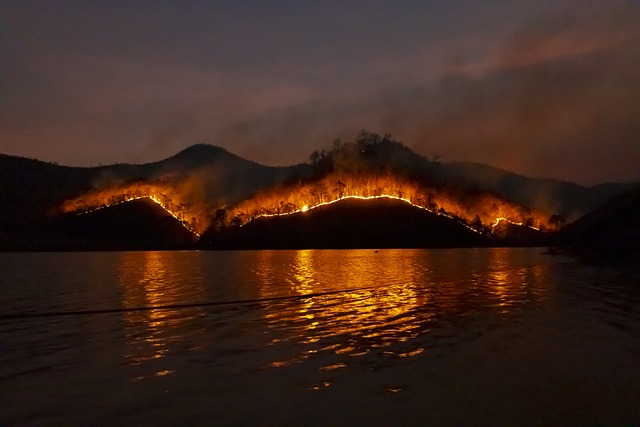
Whole Green Spaces Destroyed By Fires Over Summer Represent A Relentless Environmental Crisis
The summer of 2023 proved to be a particularly critical period for many European countries, due to the escalation of fires that have affected vast territories, putting a strain on environmental resources and highlighting the need to also tackle climate change, among the first responsible, in a more urgent and effective way. Wildfires, fuelled by inclement weather and record temperatures near all-time highs, have shed light on an increasingly troubling environmental crisis.
One of the key factors contributing to the widespread wildfires in Europe during the summer of 2023 was the unprecedented heat wave. In fact, record temperatures have been recorded in many countries, exceeding the seasonal averages by several degrees. Such extreme weather conditions have made the land drier and more vulnerable to fires, creating an ideal environment for flames to spread. The escalation of fires in Europe during the just ended summer of 2023, is a strong reminder of the urgency of tackling climate change. Experts agree that rising global temperatures and increasingly unpredictable weather patterns are contributing to the frequency and intensity of wildfires. Deforestation, urbanization and intensive agriculture have made many areas more susceptible to the spread of flames, most often started by those with agricultural interests.
The summer fires have had a devastating impact on Europe’s environment and by now, thousands of hectares of forest have been destroyed, with negative consequences on biodiversity and natural habitats. Many unique animal and plant species are at risk of extinction due to the loss of their natural environment while the smoke produced by the fires has polluted the air and caused health problems for the local population, contributing to the worrying levels of air pollution recorded in the last months.
Fire management has become a crucial challenge for European governments especially in the last period. Many countries have had to mobilize significant resources, including firefighting equipment and trained personnel, to contain the spread of flames. Cross-border cooperation was essential, as fires often crossed national borders, requiring a coordinated response. Local communities have played a vital role in the response to the fires as residents of affected areas have joined relief efforts, helping to put out the flames and providing emotional support to the displaced. These events highlighted the importance of community resilience and local empowerment in managing environmental crises.
To avoid similar situations in the future, it is essential to take concrete measures to prevent forest fires and these measures include sustainable forest management, restoration of damaged ecosystems and promotion of agricultural and construction practices that reduce the risk of fires. However, it is equally important to address the underlying causes of the fires, especially climate change which so far would appear to still be underestimated by some nations.
Globally, the summer of 2023 should serve as a warning that climate change, considered by many experts to be cyclical and unaffected by humans, is not a future threat, but a concrete reality that requires immediate action. International agreements such as the Paris one must be implemented more rigorously and ambitiously, so that the increase in global temperatures can be limited and the frequency and intensity of extreme weather events reduced.
The 2023 summer fires in Europe highlighted the vulnerabilities of nations to extreme weather events and the need to act quickly to counter a similar evolution. The challenges posed by wildfires require a global response, coordinated local action and a long-term commitment to prevent future environmental disasters by serving as a call to action for all sectors of society, from government institutions to local communities and individuals citizens, so that a more sustainable and resilient future can be built.
Alessandro Fiorentino



 Subscribe
Subscribe